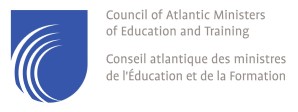
TOOLKIT FOR
HIGH SCHOOL
STUDENTS
Recognize and articulate personal strengths, limitations, goals, biases and emotions and assess personal readiness for responsibilities and challenges in diverse life roles.
You can demonstrate your self-awareness through:
- Engaging in realistic self-appraisal (i.e., knowing what you’re good at, care about and like to do; and knowing your limitations)
- Being confident and positive about your identity
- Identifying the skills, interests, talents and attitudes that you develop through diverse life/work/learning experiences
- Envisioning yourself in the future and taking responsibility for getting there
- Describing necessary education/training and/or other experiences to prepare for your preferred future
- Inviting, evaluating, reflecting upon, and, when appropriate, integrating feedback from multiple sources
- Initiating discussions with others to expand your thinking on your preferred future
- Recognizing the interconnectedness of your personal identity, life roles and community
- Confronting your personal biases, recognizing their impact on self and others
- Recognizing how your feelings, thoughts and actions influence each other
- Recognizing when you are not ready for work, school or additional responsibilities
Jas has a pretty good sense of their own interests and strengths. Very confident with science and math courses at school, Jas consistently gets lower grades in history classes, despite working hard. Several teachers have suggested that Jas has the aptitude for an engineering career; family and friends have made similar comments. On reflection, Jas can really see how their interests, skills and values could fit well with that direction. With this in mind, Jas doesn’t get discouraged with lower history grades, knowing that it’s high science and math grades that will be more important when applying to an engineering program at university.






